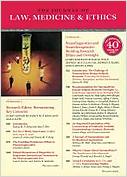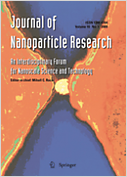This 2-year project used breakthrough DNA nanotechnology to engineer and evaluate materials to address major health challenges and food system issues. We propose to use aptamer-amphiphiles as DNA nanotubes to target and treat Alzheimer’s disease and brain tumors, and as sensors to detect food allergens such as milk.
This project produced the first systematic and comprehensive recommendations on how to protect human participants in research on nanodiagnostics and nanotherapeutics, including drugs, devices, and gene therapy using nano-vectors. Research in nano-medicine is burgeoning, with research on human participants under way, but current research ethics and oversight have not yet adequately addressed key concerns including uncertainty about how to assess risks.
This project aimed to identify oversight models for nanotechnology by assessing 6 historical oversight models: for drugs, devices, gene transfer, genetically engineered organisms in the food supply, chemicals in the workplace, and chemicals in the environment. The project brought together a multidisciplinary group of Investigators and senior personnel from the University of Minnesota, with strengths in nanotechnology research and development, public policy, law, health, environment, economics, and bioethics and involves outside collaborators representing a range of perspectives.


